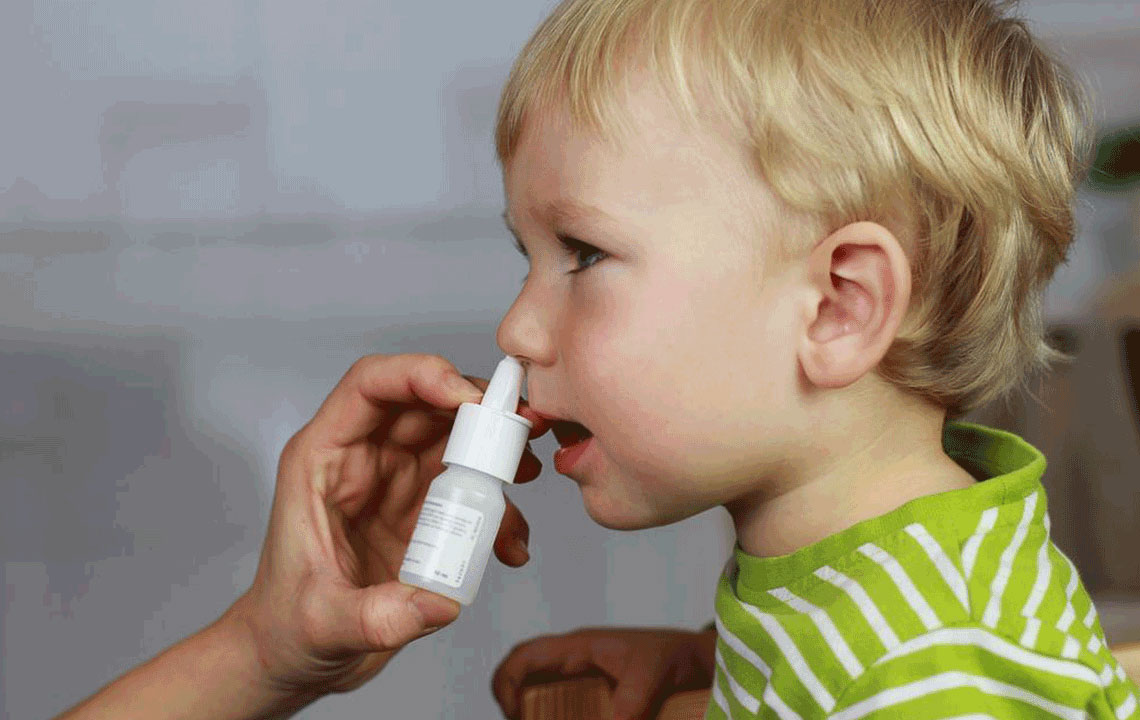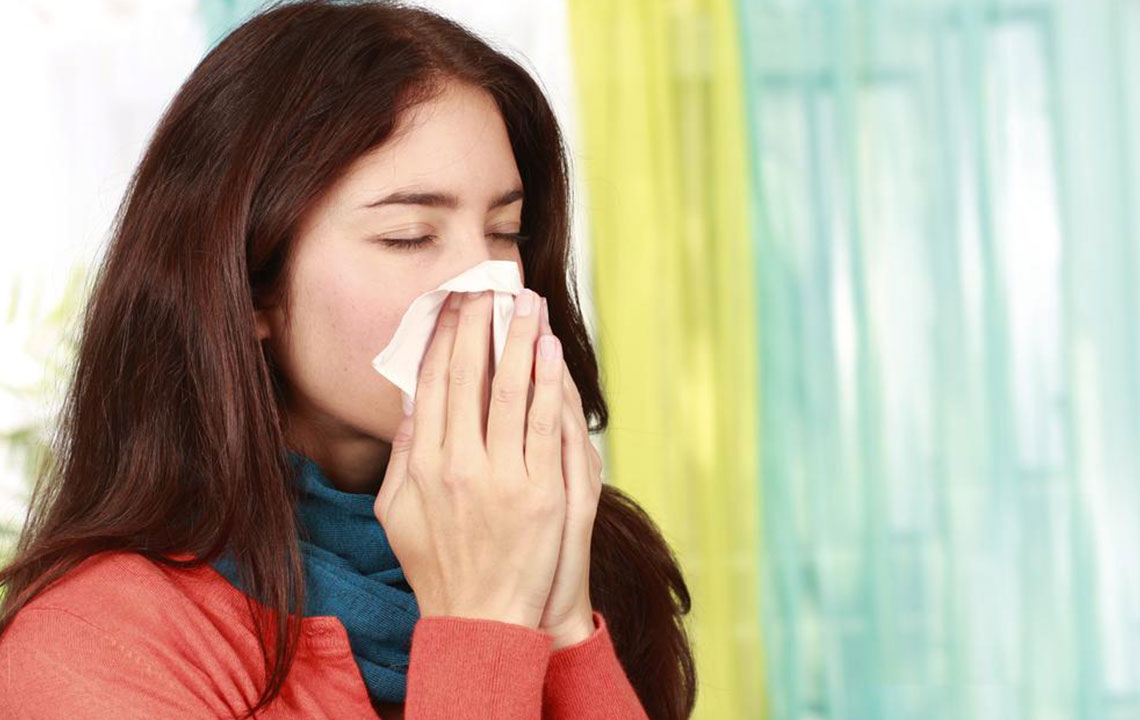Comprehensive Guide to Relieving Nasal Congestion Naturally and Effectively
This comprehensive guide covers effective strategies for relieving nasal congestion naturally. It emphasizes home remedies such as humidifiers, steam inhalation, hydration, saline sprays, warm compresses, spicy foods, and cautious use of decongestants. The article offers detailed tips and safety precautions, aiming to help individuals manage nasal blockage efficiently and improve their quality of life. Ideal for those seeking non-pharmaceutical solutions, this guide provides practical advice for quick and sustained relief from nasal congestion.

Comprehensive Guide to Relieving Nasal Congestion Naturally and Effectively
Nasal congestion, commonly known as a stuffy nose, is a widespread condition characterized by swelling of the tissues and blood vessels inside the nasal passages. This swelling leads to a feeling of nasal blockage or stuffiness, often accompanied by a runny nose, sneezing, and other cold-like symptoms. It can significantly impact daily activities, making breathing uncomfortable and sometimes causing sleep disturbances. Nasal congestion is typically caused by infections such as colds and influenza, allergic reactions to pollen, dust, or pet dander, and sometimes structural issues within the nasal passages.
Understanding how to effectively alleviate nasal blockage is essential for relief and improved quality of life. While over-the-counter medications provide quick relief, there are numerous natural and home remedies that can be just as effective, especially for mild symptoms or as complementary treatments. This comprehensive guide explores proven methods and practical tips to reduce nasal congestion, offering you a variety of options tailored to your needs and preferences.
Understanding Nasal Congestion and Its Causes
Nasal congestion arises from inflammation and swelling of the mucous membranes lining the nasal passages. This process boosts blood flow to the area and causes tissues to swell, narrowing the airways. Several factors can trigger this response:
Viruses causing colds and influenza
Allergy-related responses to pollen, dust mites, pet dander, or mold
Environmental irritants, such as smoke and pollution
Structural abnormalities like a deviated septum
Hormonal changes, especially during pregnancy or hormonal therapy
Effective Home and Natural Remedies to Ease Nasal Blockage
While medications can offer rapid relief, many individuals prefer natural and non-invasive methods to manage nasal congestion. These methods are often cost-effective and devoid of potential side effects associated with pharmaceuticals. Here are some tried and tested strategies:
1. Utilize a Humidifier for Optimal Moisture
One of the simplest and most effective ways to combat nasal congestion is maintaining adequate humidity levels in your environment. Dry air can irritate nasal tissues and dry out mucus membranes, exacerbating congestion. Using a humidifier or vaporizer adds moisture to the air, helping to soothe irritated nasal passages. It also prevents mucus from becoming too thick, thus facilitating easier drainage. For best results, keep the humidity level between 30-50% and clean your humidifier regularly to prevent mold and bacteria buildup.
2. Inhale Steam for Immediate Relief
Steam inhalation is a traditional remedy that provides quick and effective relief. Breathing in warm, moist air loosens thick mucus, reduces inflammation, and temporarily alleviates nasal congestion. You can achieve this by taking a hot shower or bath, or by pouring hot water into a bowl, placing a towel over your head, and inhaling the steam deeply. Adding essential oils like eucalyptus or peppermint can enhance decongestant effects. Always exercise caution with hot steam to avoid burns or scalds.
3. Stay Well-Hydrated for Clearer Sinuses
Hydration plays a vital role in managing nasal congestion. Drinking plenty of fluids such as water, herbal teas, broths, or fruit juices helps thin mucus secretions, making them easier to expel. Proper hydration also maintains the health of mucous membranes and supports the immune system. Aim for at least 8-10 glasses of fluids daily, especially when battling a cold or allergy symptoms.
4. Saline Nasal Sprays and Irrigation for Gentle Cleansing
Saline sprays and rinses are excellent options for natural nasal cleansing. They help moisturize dry nasal tissues and wash out irritants, allergens, and excess mucus. Saline spray can be used multiple times a day, while neti pots offer a more thorough rinse. When using a neti pot, use sterile, distilled, or previously boiled water to prevent infections. Proper technique ensures safe and effective cleansing, providing immediate relief from nasal congestion.
5. Warm Compresses for Comfort and Swelling Reduction
Applying a warm, damp cloth over the nasal bridge and forehead can significantly soothe discomfort. The warmth helps increase circulation, reduce inflammation, and open up congested nasal passages. This simple treatment might also ease sinus pressure and headache associated with nasal blockage. Use clean, moist cloths, and reheat as necessary for sustained relief.
6. Incorporate Spicy Foods to Stimulate Air Passage
Consuming spicy foods, such as chili peppers, horseradish, or wasabi, can trigger nasal secretion and open up blocked airways temporarily. The capsaicin in chili peppers acts as a natural decongestant by irritating mucosal membranes, leading to mucus drainage. While effective for some, spicy foods should be eaten in moderation to avoid gastrointestinal discomfort or irritation.
7. Use Over-the-Counter Decongestants Wisely
For more immediate and potent relief, decongestant medications like nasal sprays (e.g., oxymetazoline) or oral pills (pseudoephedrine) can be used. These medications constrict blood vessels in the nasal passages, reducing swelling and congestion. However, they should be used with caution and not for extended periods, as overuse may cause rebound congestion or side effects like increased blood pressure. Always consult a healthcare professional before starting any medication.
Additional Tips and Precautions
In addition to these remedies, maintaining proper hygiene, avoiding known irritants, and keeping your environment clean can prevent and reduce nasal congestion. If symptoms persist beyond ten days, worsen, or are accompanied by high fever, severe headache, or facial pain, seek medical advice promptly. Underlying conditions such as sinus infections or structural abnormalities may require professional treatment.
Conclusion: Combining Remedies for Best Results
Nasal congestion can be bothersome, but with a combination of natural remedies, environmental adjustments, and appropriate medication when needed, relief is achievable. Start with simple approaches like humidification, steam inhalation, and hydration, and incorporate additional treatments as necessary. Always prioritize safety and consult healthcare providers for persistent or severe symptoms. With consistent care, you can reduce nasal blockage effectively and enjoy easier breathing daily.





